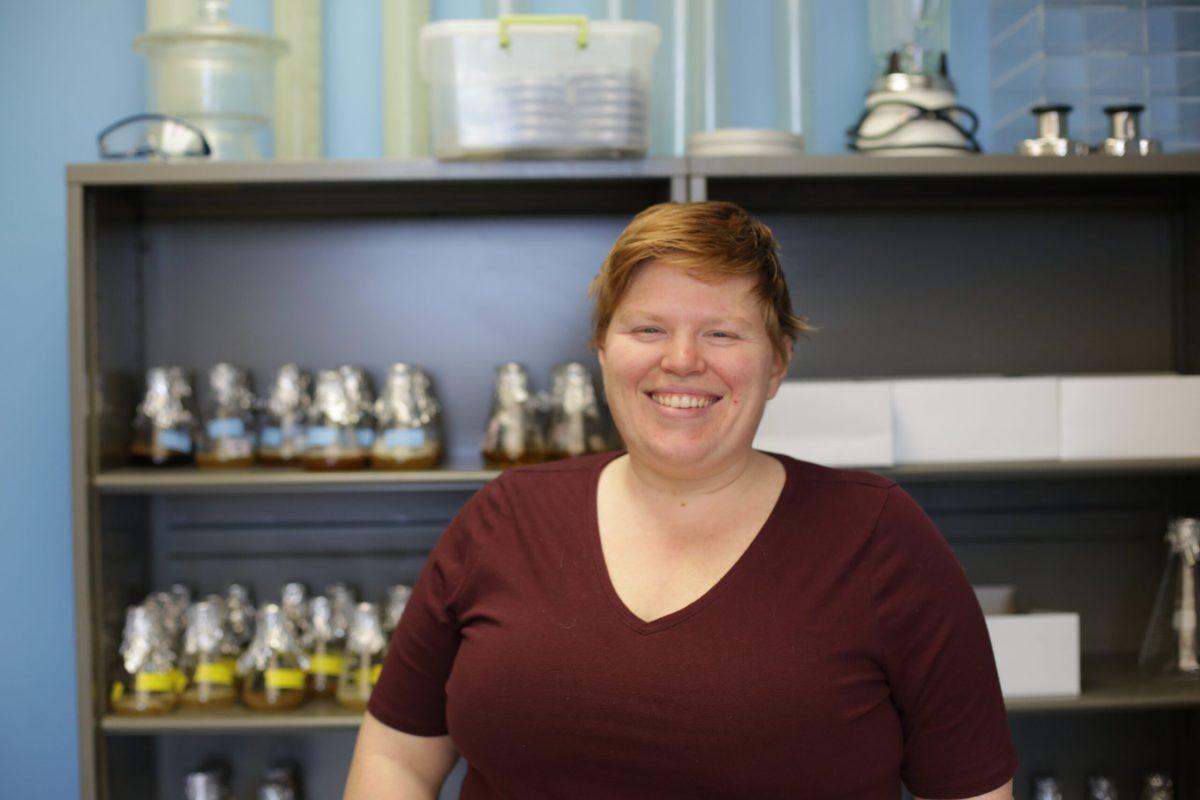
Sixth-year Ph.D. student Sarah Unruh’s research is as unique as the organisms she studies. She compared her research in Associate Dean Chris Pires’ lab to hacking her way through the jungle.
Unruh is forging her own path as she studies the relationship between orchids and fungi. She is the only one in the Pires lab studying the subject.
While orchids may sound simple, Unruh said they’re actually quite unique in the plant world, and not much is known about their connection to fungi.
“Orchids are really bizarre plants for almost any reason you can pick,” she said. “If you think about biting into an ear of corn, you get all of that starchy goodness, and that’s what lets that corn kernel grow up and become a plant. Orchid seeds don’t have anything to give their embryo food. Instead, they rely on this fungus to come along and grow into the seed, and the fungus actually gives the seed what it needs to germinate.”
When she came to MU as a freshman, Unruh initially wanted to be a teacher. As she worked toward a double-major in education and biology, however, she took an interest in plant science and research.
“I happened to take a class with Chris Pires,” she said. “I had no idea what plant systematics was. I had never had anything about plants before, but I loved the lab component of the class and I loved the information, so I started as a junior in this lab and I’ve stayed in it ever since.”
Pires said Unruh was a dedicated student then and a self-motivated researcher now.
“I would say Sarah, when she took the class, she was always the student who would come up afterwards and say, ‘I want more papers to read about this. I want to learn more,’” Pires said. “She was really enthusiastic.”
Unruh said she settled on the symbiotic relationship between orchids and fungi as her area of interest “very serendipitously.” She had read about orchids and their unique characteristics, and decided to look into some of the unanswered evolutionary questions about orchids.
Along the way, however, she met Illinois College professor Larry Zettler. Zettler studies the fungi that orchids need to germinate. She decided to shift her focus from the orchids to the fungi and the relationship between the two.
“If these plants rely on these fungi, we should probably know more about them so we know where to put them to rescue population,” Unruh said.
While she enjoys working with data and computer systems, Unruh said she faces difficulties when it comes to troubleshooting problems and waiting for orchids to grow.
“I can have a dish with orchid seeds on it and after a year, they still might not even have leaves on them,” she said. “This project’s really cool for lots of reasons, but those same reasons make it more difficult.”
After years of working with Unruh in the lab, Pires said he has seen her grow into an independent student. Her individuality has been an asset to her as she explores a topic that not many others have examined.
“What I see is [a change from] somebody who really as a student needs a lot of help to somebody who’s running her own lab,” Pires said. “The first thing I would say in any letter of recommendation for Sarah is that she’s an independent investigator.”
After she earns her Ph.D., Unruh plans to pursue a career as a research professor. She said she’s not sure how far she’ll take her orchid research, but that it’s something she could always come back to.
“In our lab we have a history of taking on really ambitious projects,” she said. “More than once we’ve concluded that this is actually a really good setup for a lifelong lab. You could study these things for decades. There’s just not much known about this group of fungi in particular.”
Pires said this potential for future research is part of what makes Unruh’s research so interesting.
“As a grad student, hopefully you have a passion for orchids and fungi or whatever your thing is,” he said, “and now you have to translate that into, ‘How can I create a brand around a really good question that’s going to last me five, 10, 20 years?’ Sarah’s chosen a great project because we know so little about the relationship between plants and their underground ecosystem.”
_Edited by Morgan Smith | [email protected]_